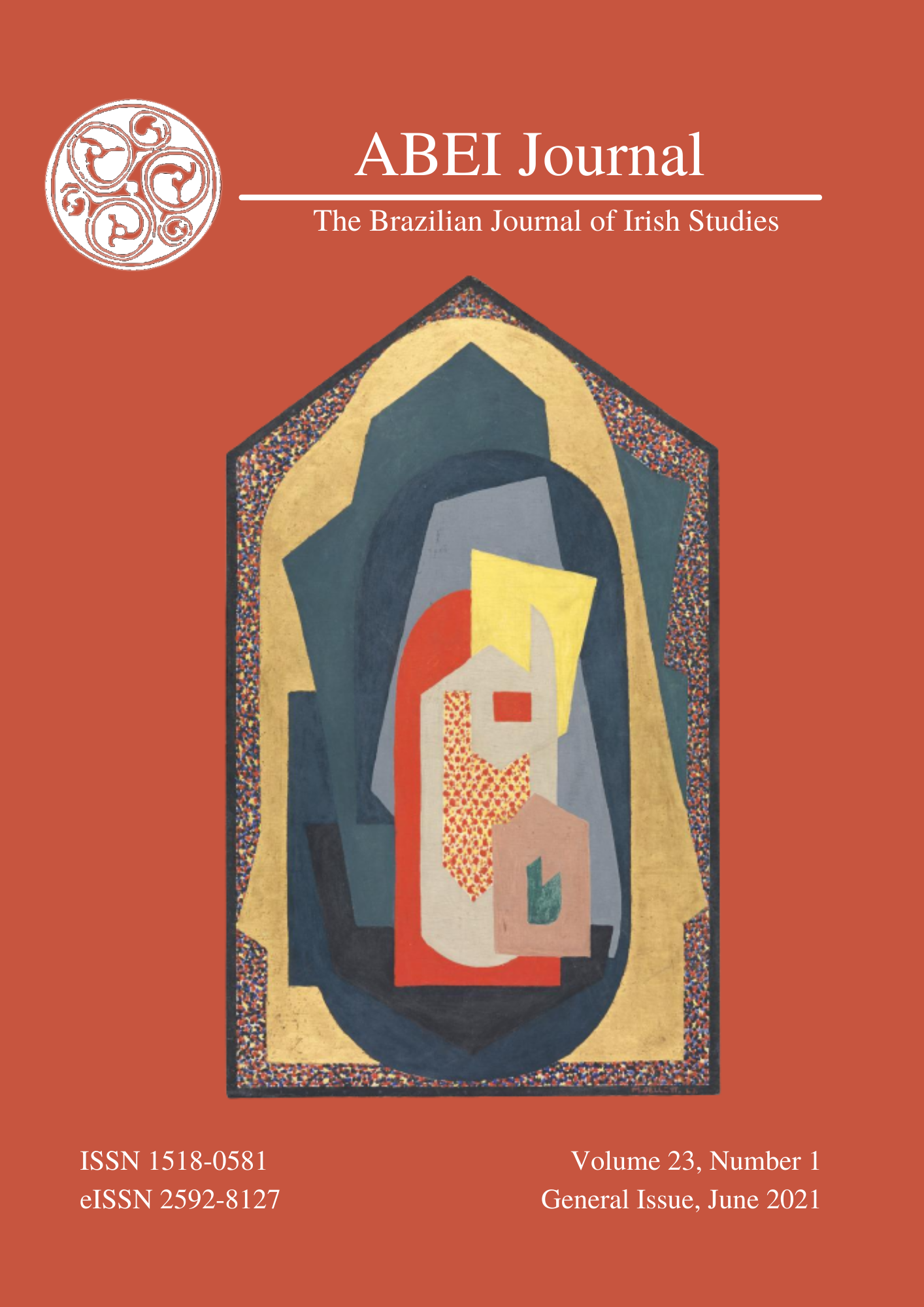Culturas diferentes, construções identitárias diferentes: Uma análise dos impactos de uma educação conservadora no romance Stir-Fry
DOI:
https://doi.org/10.37389/abei.v23i1.192583Palavras-chave:
Identidade, Estereótipo, Literatura irlandesa, LGBTQResumo
Este artigo tem como objetivo analisar os possíveis impactos da religião e dos padrões culturais conservadores no romance Stir-fry (1994) escrito por Emma Donoghue. A história se passa na Irlanda rural no início da década de 1990, e o estudo se concentra em como a protagonista Maria Murphy percebe seu próprio “Eu”, bem como a sociedade ao seu redor. O objetivo é examinar como a forte configuração religiosa que foi perpetuada na Irlanda rural afeta o senso de identidade de Maria e o que ela constrói como sendo o “Eu” e o “Outro”. Por meio da análise, foi possível compreender como ela lida com as diferenças culturais de uma cidade grande em contraposição à sociedade tradicional na qual foi criada, e como expressa essa formação conservadora diante do “diferente”, mais especificamente por meio do uso de estereótipos e da repressão.
Referências
Brah, Avtar. Cartographies of Diaspora: Contesting Identities. Routledge, 1996, London.
Gibbons, Luke et al. “Challenging the Canon: revisionism and cultural criticism”. In: Deane, Seamus (ed.). The Field Day Anthology of Irish Writing. Field Day Publications, 1991, Derry.
Hall, Stuart. A identidade cultural na pós-modernidade. 7a ed. DP&A, 2002, Rio de Janeiro
Hall, Stuart. “Cultural identity and diaspora.” Identity: Community, culture, difference. Ed. Jonathan Rutherford. London: Lawrence & Wishart, 1990. 222-37
Hall, Stuart. Questions of Cultural Identity. SAGE, 2006, New York.
Hall, Stuart. “Quem precisa da Identidade?” In: Silva, Tomaz Tadeu da (org.), Woodward, Kathrin & Hall, Stuart. Identidade e Diferença: a perspectiva dos estudos culturais. Vozes, 2014, Rio de Janeiro.
Harkot-de-la-Taille, Elizabeth. Sentir, Saber, Tornar-se - Entre o Sensório e a Identidade Narrativa. Humanitas, 2016, São Paulo.
Harkot-de-la-Taille, Elizabeth. “Construções do eu e do outro em Atwood e Munro; repercussões na leitura de si mesmo, do outro e de valores sociais contemporâneos”. In: VII Congesso Internacional de Estudos Canadenses - Interseções Brasil-Canadá: perspectivas transnacionais. UFMG, 2003, Belo Horizonte.
Klinkenberg, J.-M.; Edeline, F. L’Aventure des Modèles Interprétatifs ou la Gestion des Résidus. Liège: Laboratoire DynaLang et Equipe SEM de l’Université Paris Descartes; Groupe μ, 2008. p. 22-35.
Lippmann, Walter. Public Opinion. New York: Harcourt, Brace and Company, 1922.
Merton, Robert K. “Social structure and anomie”. In Social Theory and Social Structure, Edited by Merton. p. 185–214. Free Press, 1968, New York.
Said, Edward. “Freedom from Domination in the Future”. In: Culture and Imperialism. Vintage, 1994, London.
Staszak, Jean-François. “Other/Otherness”. In: International Encyclopedia of Human Geography. P. 43-47. Elsevier, 2009.
Spivak, Gayatri Chakravorty. Can the Subaltern Speak? Trad. bras.: Pode o subalterno falar? [Translation by Sandra R. Almeida, Marcos P. Feitosa & André P. Feitosa.] UFMG, 2010, Belo Horizonte.
Downloads
Publicado
Edição
Seção
Licença
Direitos autorais (c) 2021 Esther Borges

Este trabalho está licenciado sob uma licença Creative Commons Attribution-NonCommercial 4.0 International License.


